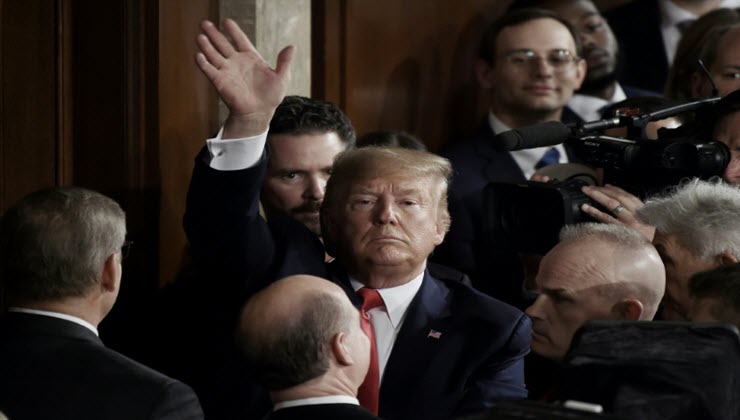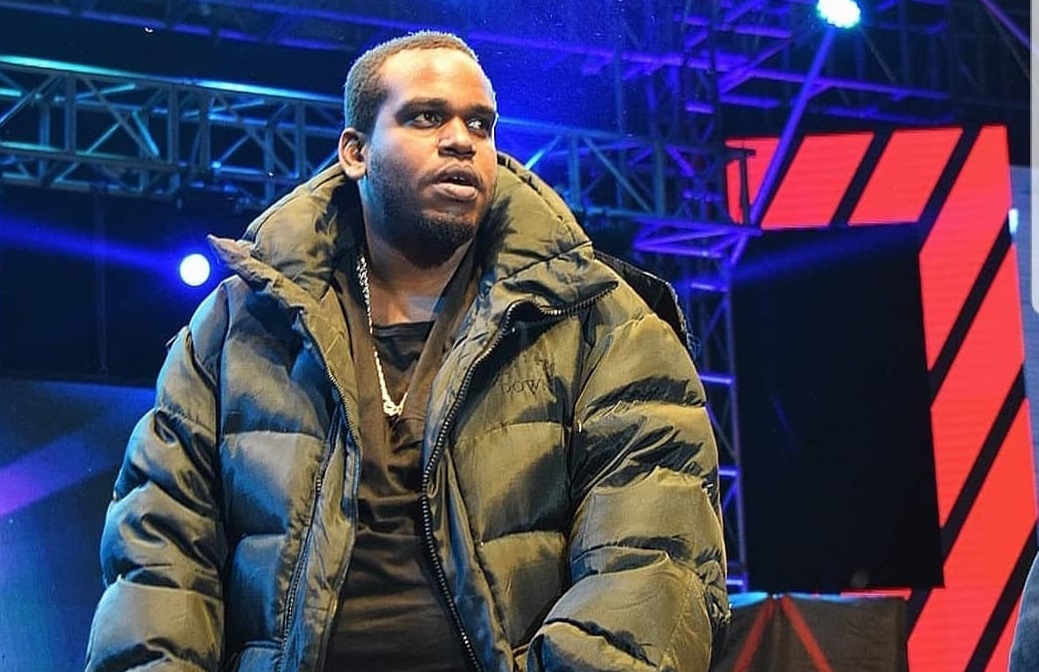President Donald Trump was acquitted by the US Senate on Wednesday following a historic impeachment trial that shone a harsh light on America’s divisions, without ever shaking the loyalty of his voter base.
In a political triumph for the US leader, Trump drew on staunch Republican support to easily defeat a Democratic effort to expel him from office for pressuring Ukraine to help bolster his re-election effort.
The president immediately claimed “victory” while the White House declared it a full “exoneration” — and Democrats rejected the acquittal as the “valueless” outcome of an unfair trial.
But the vote in the Senate showed just how solid a grip the former real estate mogul holds over the Republican Party — an asset nine months before he seeks a second four-year term.
Even though several conceded Trump’s behaviour was wrong, Republicans ultimately stayed loyal in voting to clear the president of charges of abuse of power, by 52 to 48, and of obstruction of Congress, by 53 to 47 — far from the two-thirds supermajority required for conviction.
“Two-thirds of the senators present not having found him guilty of the charges contained therein, it is therefore ordered and adjudged that the said Donald John Trump be, and he is hereby, acquitted,” said Supreme Court Chief Justice John Roberts, who presided over the trial.
One Republican, Senator Mitt Romney, a longtime Trump foe, risked White House wrath to vote alongside Democrats on the first count, saying Trump was “guilty of an appalling abuse of public trust.” He voted not guilty on the second charge.
Trump’s impeachment and trial will leave a permanent stain on his record, as it did for the only two presidents to have encountered the same fate, Andrew Johnson in 1868 and Bill Clinton in 1998.
But the Senate verdict was never truly in question since the House of Representatives formally impeached Trump in December, and it has now cleared out a major hurdle for the president to fully plunge into his campaign for re-election in November.
Trump to speak Thursday
Responding to the verdict, Trump announced he would deliver a formal statement Thursday from the White House “to discuss our Country’s VICTORY on the Impeachment Hoax!”
The president had earlier tweeted a montage depicting a fake cover of Time magazine declaring him president for all eternity. Trump later tweeted a video attacking Romney, the first senator in US history to support convicting a president from his own party.
While the White House declared that Trump had obtained “full vindication and exoneration,” Nancy Pelosi, the House Speaker, warned that by clearing Trump Republicans had “normalized lawlessness.”
“There can be no acquittal without a trial, and there is no trial without witnesses, documents and evidence,” said the top Democrat in Congress — who a day earlier ripped up her copy of Trump’s State of the Union address on live television.
“Sadly, because of the Republican Senate’s betrayal of the Constitution, the president remains an ongoing threat to American democracy, with his insistence that he is above the law and that he can corrupt the elections if he wants to.”
Senate minority leader Chuck Schumer said the acquittal was “virtually valueless” since Republicans refused witnesses at his trial, something which Democrats said had never happened before at any impeachment trial.
‘Forever impeached’
The Democrats’ intense 78-day House investigation faced public doubts and high-pressure White House stonewalling, a tactic which led to the obstruction charge.
Concerned about the political risk for the party, Pelosi rejected a call early last year to impeach Trump on evidence compiled by then-special counsel Robert Mueller that he had obstructed the Russia election meddling investigation.
But her concerns melted after new allegations surfaced in August that Trump had pressured Ukraine for help in his 2020 campaign.
Though doubtful from the outset that they would win support from Republicans, an investigation amassed with surprising speed strong evidence to support the allegations.
The evidence showed that from early in 2019, Trump’s private lawyer Rudy Giuliani and a close political ally, Ambassador to the European Union Gordon Sondland, were scheming to pressure Kiev to help smear Democrats, including Trump’s potential 2020 rival Joe Biden, by opening investigations into them.
“We must say enough — enough! He has betrayed our national security, and he will do so again,” Adam Schiff, who led the House prosecution, argued on the Senate floor this week.
‘Colossal’ mistake’
In the trial, Trump’s defense was not seen as having undermined the facts compiled by Schiff’s probe, and several Republican senators acknowledged he did wrong.
But his lawyers and Senate defenders argued, essentially, that Trump’s behavior was not egregious enough for impeachment and removal.
And, pointing to the December House impeachment vote, starkly along party lines, they painted it as a political effort to “destroy the president” in an election year and insisted voters should be allowed to decide Trump’s fate.
As he wound down the Senate proceedings, Majority Leader Mitch McConnell said he was confident impeachment would ultimately benefit Republicans.
“They thought this was a great idea. At least for the short term, it has been a colossal political mistake.”










